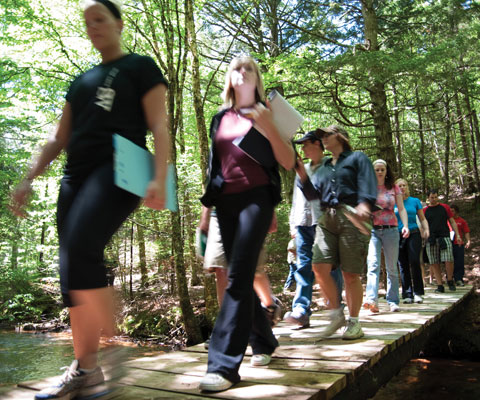Facts and stats
Overview
-
1.5Mstudents at Canadian universities
Universities welcomed approximately 1.16 million full-time and 421 thousand part-time students to campus in fall 2023.
-
$45.1Badded to the Canadian economy
As a $45.1 billion enterprise in direct expenditures, universities are significant drivers of economic prosperity. They provide employment for close to 410,000 people.
-
115%increase in jobs requiring a bachelor's degree
Since 2015, jobs requiring a bachelor’s degree increased by 115%. Jobs requiring higher qualifications increased by 170%.
Data tables
Indigenous education
Universities are closing the gap for Indigenous students
-
9.4%Indigenous population increase
From 2016 to 2021, the Indigenous population in Canada grew 9.4%, almost twice the pace of Canada’s non-Indigenous population growth.
-
114Kadditional graduates
There could be 114,070 additional First Nations post-secondary graduates if we work to close the education gap by 2041.
-
$233Beconomic gain
If we close the education gap, Canada could see an economic gain of $233 billion.
Work-ready skills
Universities are providing students with career-boosting opportunities
-
88%feel prepared
88% of students say their courses will positively impact their ability to secure a job in their field of study.
-
74%benefit from work-integrated learning
74% of bachelor’s students who participated in a work-integrated learning opportunity said it helped them find a job after graduation.
-
24%more earnings
Graduates with a bachelor’s degree earn on average $68.3 thousand dollars per year, 24% more than the national average income.
Research and innovation
Universities are positioning Canada as a global leader in research and innovation
-
$17Bin R&D
Universities performed $17 billion in research and development in 2023, accounting for 35 percent of total Canadian research and development.
-
300patents in 2022
University research institutes issued over 300 patents in 2022 alone.
-
875startups founded
875 startup companies dedicated to commercializing technologies developed at Canadian universities and research institutions.
Climate innovation
Universities are equipping Canada for a more efficient future
-
7Kclimate researchers
There are over 7,000 climate researchers at Canadian universities.
-
70research centres and institutes
Over 70 climate-related research centres and institutes are spread across the country.
-
40campuses as living labs
Over 40 Canadian universities use their campuses to research and test innovative sustainability practices and technologies while providing students with hands-on learning experiences.
Student services
Universities are supporting students holistically throughout their academic journeys
-
93%provide university residence
93% of Universities Canada member institutions provide residence options for students.
-
50%access campus mental health services
50% of students access their university’s mental health services.
-
5.6Kwork-integrated learning programs
80 universities across Canada offer over 5,600 work-integrated learning programs (including co-ops, apprenticeships and internships).
Studying across borders
Universities are developing students with cross-cultural skills and adaptability
-
62%of study abroad participants found career direction
62% of participants found studying abroad provided direction for their post-graduation plans.
-
84%found increased global networks
84% of study abroad participants increased their professional network outside of Canada.
-
89%feel more adaptable
89% of study abroad participants feel more adaptable in diverse contexts due to their international experience.

